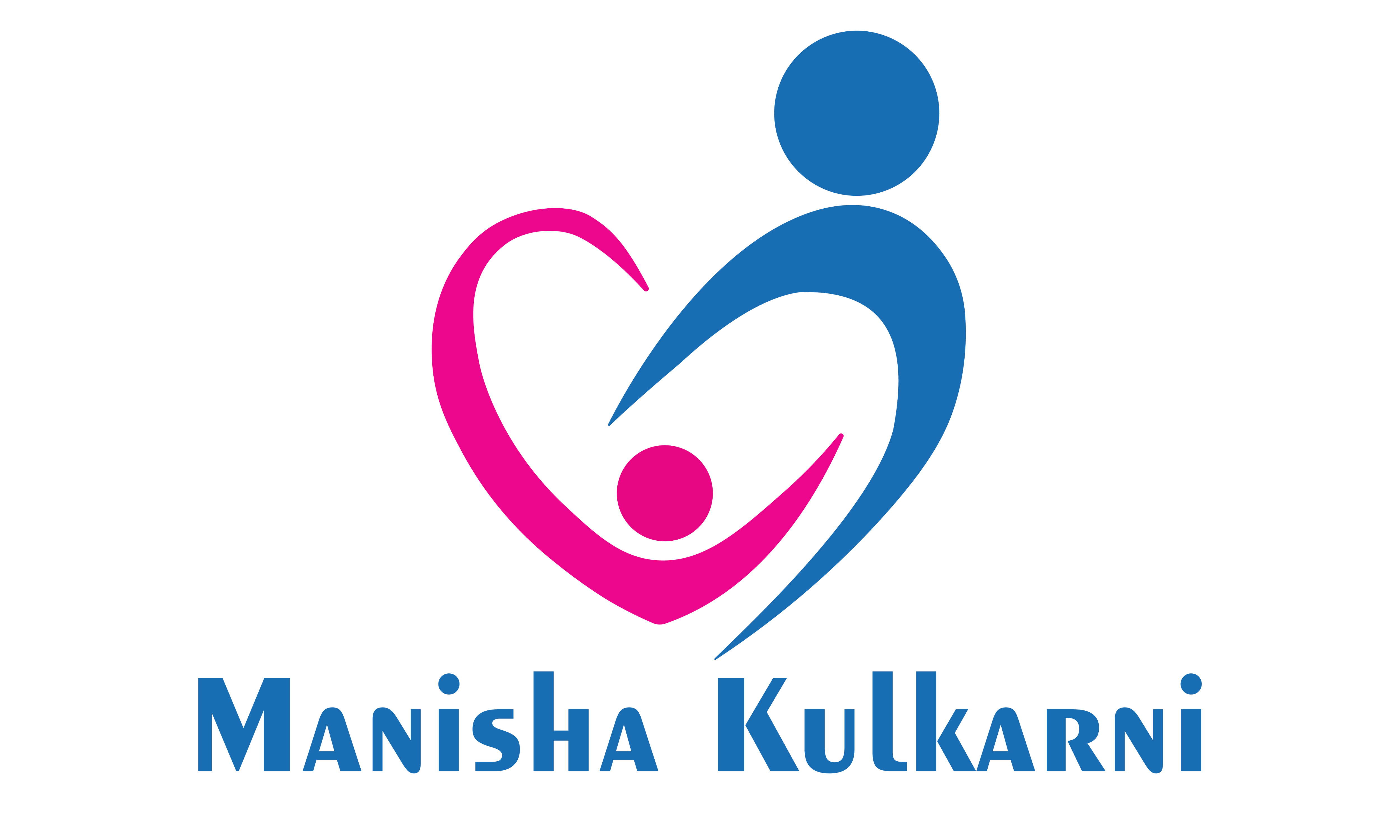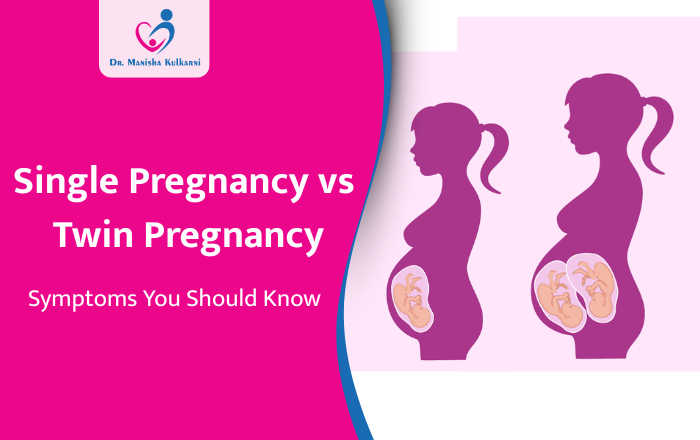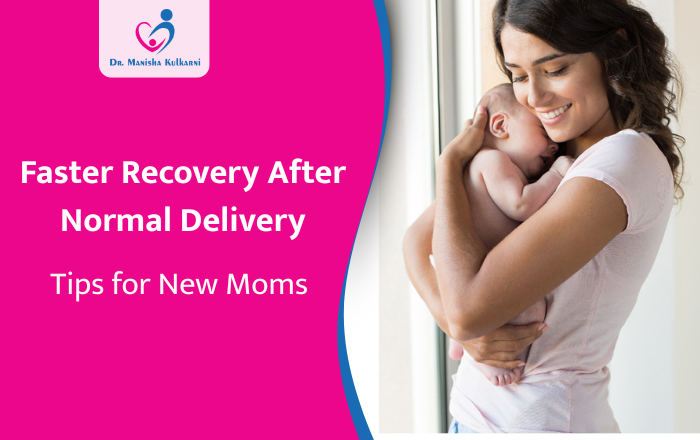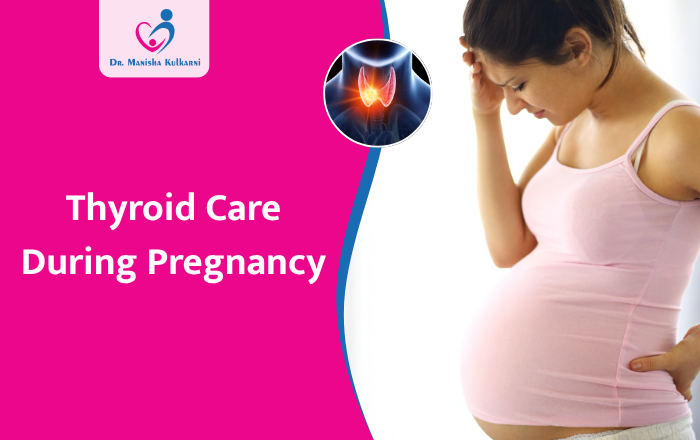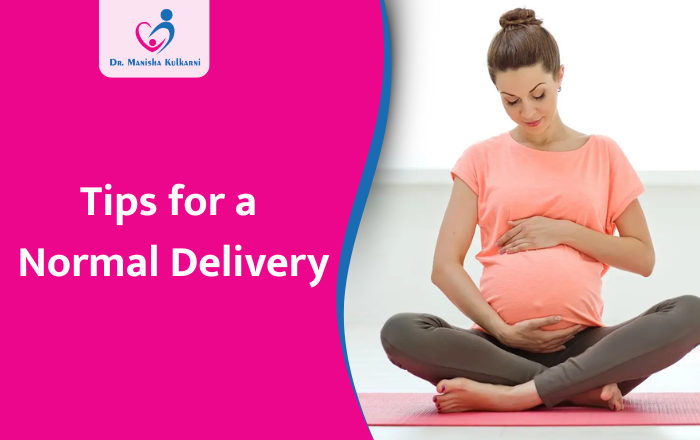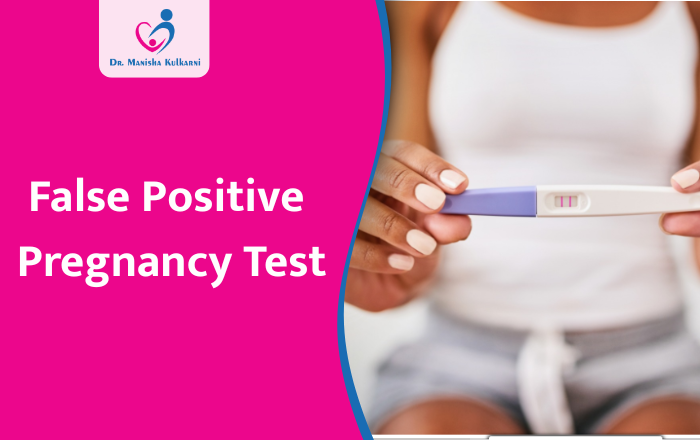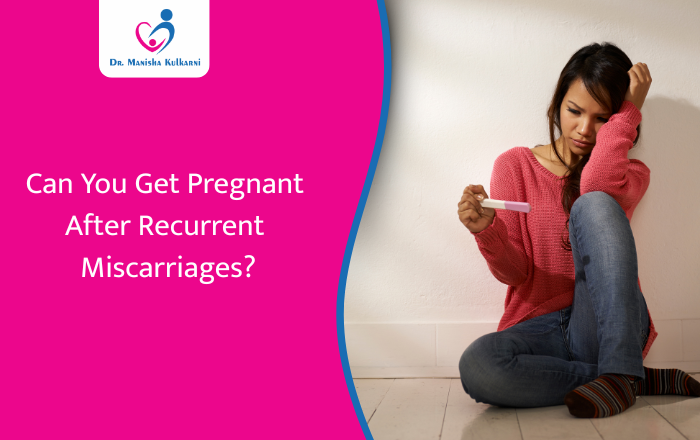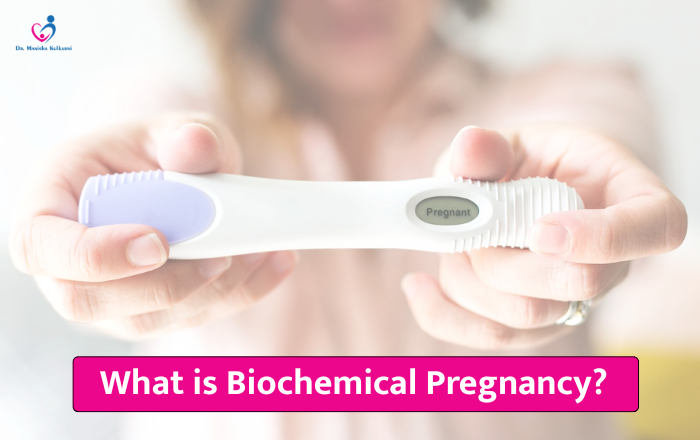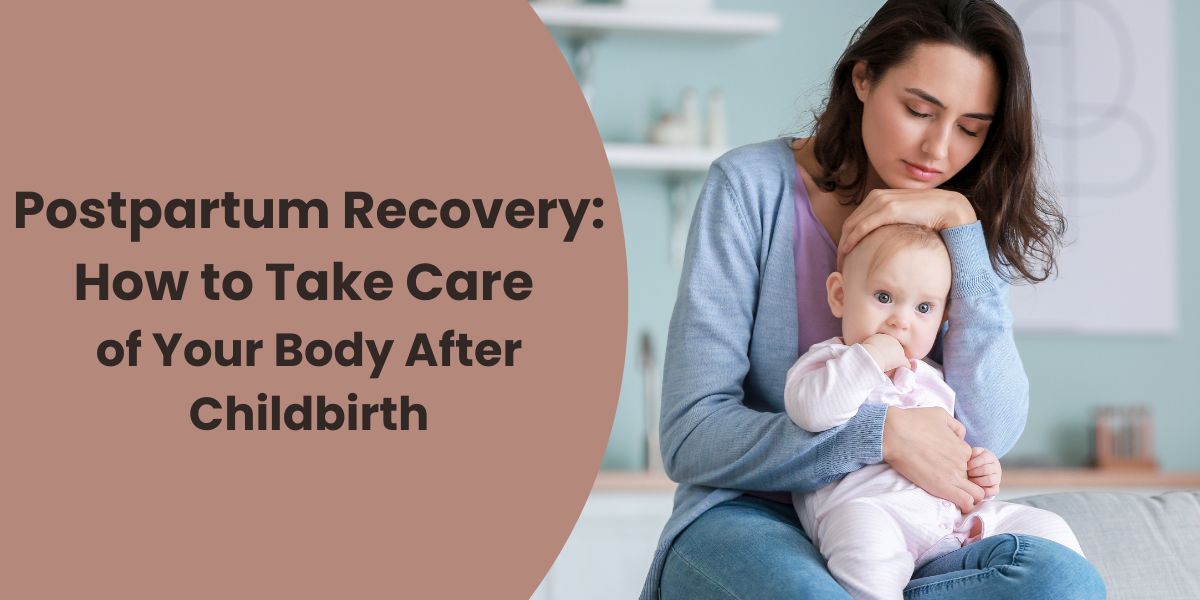Are you staring at a positive pregnancy test and wondering if there might be two little ones growing inside you? It’s an exciting thought! While most women carry one baby, twin pregnancies are becoming more common these days. Whether you’re experiencing unusually strong symptoms or just curious about the differences, understanding what sets single pregnancy vs twin pregnancy apart can help you prepare for the amazing journey ahead. From morning sickness that won’t quit to a belly that seems to grow overnight, twin pregnancy symptoms can feel quite different from carrying just one baby. Let’s explore the key differences and help you recognize the signs of twin pregnancy so you know what to expect. Understanding the Basics What Makes Each Pregnancy Unique? In a single pregnancy, one fertilized egg develops into a baby over about 40 weeks. It’s the most common type of pregnancy, and most women experience fairly predictable symptoms and milestones. A twin pregnancy happens when two babies grow at the same time. They can be identical (from one egg that splits) or fraternal (from two separate eggs). Twin pregnancies usually need more frequent doctor visits and tend to deliver around 37 weeks instead of the full 40. Early Warning Signs: Could You Be Carrying Twins? – Symptoms Both Pregnancies Share Whether you’re having one baby or two, you’ll likely experience: A missed period Sore, tender breasts Feeling tired more than usual Needing to pee frequently Strange food cravings or sudden dislikes – Twin Pregnancy Symptoms That Stand Out Here’s where things get interesting. Women carrying twins often notice: Much Higher Hormone Levels: Blood tests reveal significantly elevated hCG (pregnancy hormone). This isn’t something you’ll feel directly, but your doctor will notice. Extreme Morning Sickness: While some nausea is normal, twin pregnancy often brings intense, all-day sickness that can last well into the second trimester. The higher hormone levels are the culprit here. Exhaustion That Won’t Let Up: Growing two babies takes serious energy. If you’re completely wiped out from the very beginning, it could be a clue. Faster Weight Gain: Your scale might climb more quickly in the first few months with twins, even before your bump appears. Earlier Baby Movements: Many moms of twins report feeling those first flutters around 18 weeks, compared to 20-24 weeks with a single baby. Physical Changes Throughout Your Pregnancy – Morning Sickness: The Big Difference With a single pregnancy, morning sickness usually peaks around 9-10 weeks and fades by the second trimester. It’s uncomfortable but manageable for most women. In a twin pregnancy, nausea can be severe and stick around much longer—sometimes throughout all nine months. Why? Your body produces more hCG and progesterone when carrying twins. – Your Growing Belly Here’s something you’ll definitely notice: twin moms typically show earlier and bigger. Your doctor might say you’re “measuring ahead” at appointments. That growing bump puts more pressure on your bladomen, which can mean more discomfort and stretching sensations. With twins, you’ll likely gain 37-54 pounds compared to 25-35 pounds with one baby. This isn’t just about eating more—it’s your body’s way of supporting two growing lives. – Energy Levels Feeling tired is part of pregnancy, but twin moms often describe bone-deep exhaustion that makes even simple tasks feel overwhelming. Your body is working double-time, burning more calories and energy every single day. How Doctors Confirm Twins The Most Reliable Tests Ultrasound is the gold standard. Between 8-12 weeks, your doctor can see two gestational sacs and hear two heartbeats. It’s an unforgettable moment! Blood Tests showing very high hCG levels might suggest twins, but they’re not definitive on their own. Doppler Heartbeat Detection can pick up two distinct heartbeats with different rhythms. AFP Screening sometimes shows higher-than-normal levels with twins during routine prenatal tests. Health Considerations What You Should Know Twin pregnancies do come with higher risks, which is why regular prenatal care is so important. Possible complications include: Preterm labor (going into labor early) High blood pressure during pregnancy Gestational diabetes Lower birth weights A greater chance of needing a C-section This doesn’t mean something will go wrong—just that your doctor will watch you more closely with additional ultrasounds and checkups. Taking Care of Yourself – Eating for Two (or Three!) With a single pregnancy, you need about 300 extra calories daily. With twins, that jumps to 600 additional calories. Focus on nutritious foods rich in protein, iron, calcium, and folic acid. Drink plenty of water throughout the day. – Rest and Activity Your body will tell you when to slow down—listen to it! Twin moms need more rest and sleep. Light exercise can still be beneficial, but talk with your doctor about what’s safe for your situation. Don’t be surprised if you need frequent naps. When to Call Your Doctor Contact your healthcare provider right away if you experience: Severe stomach pain Heavy bleeding Bad headaches or vision problems The baby (or babies) moving less than usual Signs of early labor like regular contractions Your Pregnancy Deserves the Right Support Whether you’re carrying one baby or two, you deserve caring medical guidance throughout your pregnancy. Understanding the difference between single and twin pregnancy helps you make informed decisions about your care. If you’re looking for a trusted pregnancy care doctor in Magarpatta, Dr. Manisha Kulkarni at Racemous Polyclinics provides attentive prenatal care designed around your specific needs. With regular monitoring and supportive guidance, Dr. Kulkarni helps ensure healthy outcomes for both you and your baby (or babies!). Ready to start your pregnancy journey with a doctor who truly cares? Schedule your appointment with the best pregnancy care doctor in Magarpatta today and get the support you deserve!
How to Recover Faster After Normal Delivery: Helpful Tips for New Moms
Congratulations on your beautiful baby! You’ve just experienced one of life’s most amazing moments. But now, as you hold your little one, you might be wondering—why does everything hurt so much? And how can I recover faster after normal delivery? You’re not alone in feeling this way. Most new moms wonder about the same things during their first few days postpartum. The good news? Your body is incredibly strong, and with the right care, you can heal quickly and feel like yourself again. Normal delivery recovery typically takes 6-8 weeks, but there are many simple things you can do to speed up the process. In this guide, we’ll share 12 practical tips to help you heal, regain your energy, and enjoy precious moments with your newborn. Understanding What Your Body Needs Right Now After giving birth, your body goes through major changes. Your uterus needs to shrink back to its normal size, any tears or stitches need to heal, and your hormones are adjusting rapidly. You’ll also experience vaginal bleeding (called lochia) for several weeks—this is completely normal. Most women start feeling much better around week 3, but full healing takes about 6-8 weeks. During this time, your body is working hard to repair itself, which is why rest and proper care are so important. 12 Simple Tips for Faster Recovery After Normal Delivery 1. Rest Whenever You Can This might sound impossible with a newborn, but sleep is your best friend right now. Try to sleep when your baby sleeps, even if it’s just for 20-30 minutes. These short naps can make a huge difference in how you feel. Ask your partner or family members to handle household chores so you can focus on resting and bonding with your baby. 2. Eat Foods That Help You Heal Your body needs good nutrition to repair tissues and make breast milk. Include plenty of protein in your diet—eggs, chicken, fish, and lentils are all great choices. Iron-rich foods like spinach, dates, and red meat help prevent anemia, which is common after childbirth. Don’t forget to eat fresh fruits, vegetables, and whole grains too. 3. Drink Lots of Water Aim for 10-12 glasses of water every day. Staying hydrated helps your body heal faster, supports milk production if you’re breastfeeding, and prevents constipation. Keep a water bottle near you at all times, especially during nursing sessions. 4. Take Care of Your Stitches If you have stitches from tearing or an episiotomy, keep the area clean and dry. Use a peri bottle with warm water after using the bathroom, and gently pat dry. Take warm sitz baths 2-3 times daily to reduce swelling and discomfort. Ice packs can help during the first 48 hours. 5. Start Walking Gently Light walking is one of the best things you can do for recovery after normal delivery. You can usually start walking around your home within 24 hours of giving birth. This helps prevent blood clots, improves circulation, and lifts your mood. Just go slow and listen to your body—no rushing! 6. Do Kegel Exercises Daily Kegel exercises strengthen your pelvic floor muscles, which helps prevent bladder leaks and speeds healing. To do them, squeeze the muscles you use to stop urinating, hold for 5 seconds, then relax. Repeat 10 times, several times a day. You can start these a few days after delivery. 7. Manage Pain Safely Some discomfort is normal, but you don’t have to suffer. Apply ice packs to reduce swelling in the first two days, then switch to warm compresses. Over-the-counter pain relievers like ibuprofen are usually safe and can help a lot. Always check with your doctor about which medications are okay while breastfeeding. 8. Watch for Constipation Constipation is very common after delivery, and straining can be painful if you have stitches. Eat fiber-rich foods, drink plenty of water, and stay gently active. Your doctor may recommend a stool softener—don’t feel embarrassed to use it if needed. 9. Check Your Emotional Health About 1 in 7 women experience postpartum depression. If you feel sad, anxious, or overwhelmed for more than two weeks, or if you have thoughts of harming yourself or your baby, reach out for help immediately. These feelings are not your fault, and treatment really helps. 10. Ask for Help You don’t have to do everything yourself. Let your partner change diapers, ask family to cook meals, and accept help when it’s offered. Taking care of yourself isn’t selfish—it helps you take better care of your baby. 11. Wear Comfortable, Supportive Clothing Choose a good nursing bra if you’re breastfeeding. Loose, comfortable clothes help you move easily and don’t irritate healing areas. High-waisted underwear can feel more comfortable than low-rise styles. 12. Don’t Skip Your 6-Week Checkup This appointment is important. Your doctor will check that everything is healing properly, discuss birth control options, and answer any questions you have. It’s also when you’ll usually get cleared to resume exercise and intimacy. When to Call Your Doctor Contact your healthcare provider right away if you experience: Heavy bleeding that soaks through a pad in one hour Foul-smelling discharge Fever over 100.4°F Severe pain that gets worse Red, swollen, or painful breasts Difficulty urinating Severe headaches or vision problems You Deserve Support During Your Recovery While these tips will help you heal at home, having a knowledgeable doctor guide you through postpartum recovery makes everything easier. Dr. Manisha Kulkarni offers dedicated postpartum care services in Magarpatta, Pune, helping new moms recover safely and confidently. Whether you need help with physical healing, breastfeeding questions, or just want reassurance that what you’re experiencing is normal, Dr. Kulkarni provides caring support tailored to your needs. 📍 Location: Magarpatta, Pune 📞 Book your postpartum consultation today and get the guidance you need during this special time. Your Recovery Journey Matters Remember, every woman heals at her own pace. Some days will feel easier than others, and that’s perfectly okay. Be patient and kind to yourself—your body just did something incredible. By following
How to Care for Your Thyroid During Pregnancy: A Complete Guide
Pregnancy brings so many changes to your body, and your thyroid—that small butterfly-shaped gland in your neck—works harder than ever during these nine months. If you’re wondering how to care for your thyroid during pregnancy, you’re already taking an important step toward a healthy journey for both you and your baby. Your thyroid produces hormones that help your baby’s brain develop properly. It also controls your energy levels, body temperature, and metabolism. During pregnancy, your body needs up to 50% more thyroid hormones. This means even women who’ve never had thyroid problems before might face challenges. Whether you have hypothyroidism, hyperthyroidism, or simply want to keep your thyroid healthy, understanding the basics can make a real difference. Let’s walk through everything you need to know about thyroid care during pregnancy. Why Your Thyroid Health Matters During Pregnancy Your thyroid does crucial work when you’re expecting. The hormones it produces—called T3 and T4—help build your baby’s brain and nervous system, especially in the first trimester. Without enough thyroid hormone, your baby’s development could be affected. Pregnancy naturally changes how your thyroid works. The pregnancy hormone hCG actually stimulates your thyroid to work harder. Your body also produces more blood, which dilutes thyroid hormones. These changes mean you need closer monitoring throughout pregnancy, even if your thyroid was perfectly healthy before. Common Thyroid Problems You Might Face ▹Hypothyroidism (Underactive Thyroid) This happens when your thyroid doesn’t make enough hormones. You might feel constantly tired (more than typical pregnancy fatigue), gain weight unexpectedly, feel unusually cold, or struggle with brain fog. Some women also experience constipation or notice their hair becoming dry and brittle. If left untreated, hypothyroidism can lead to serious issues like miscarriage, preeclampsia, or problems with your baby’s brain development. ▹Hyperthyroidism (Overactive Thyroid) This is when your thyroid makes too much hormone. Signs include a racing heartbeat, feeling overheated all the time, unexplained weight loss, shaky hands, and severe anxiety. Untreated hyperthyroidism might cause premature birth or low birth weight. The tricky part? Many thyroid symptoms look like normal pregnancy experiences. That’s why testing is so important. Recognizing Warning Signs Pay attention to these symptoms and mention them to your doctor: For Hypothyroidism: Exhaustion that rest doesn’t fix Unexpected weight gain beyond normal pregnancy Difficulty concentrating or remembering things Always feeling cold when others are comfortable Very dry skin or hair loss For Hyperthyroidism: Heart racing or pounding Constant sweating or feeling too hot Losing weight despite eating enough Trembling hands Extreme nervousness or irritability Essential Steps for Thyroid Care During Pregnancy ▹Get Tested Early and Regularly Ask for thyroid screening before you conceive or during your first trimester. The tests check your TSH (thyroid stimulating hormone), Free T4, and sometimes thyroid antibodies. If you have thyroid issues, expect testing every 4-6 weeks throughout pregnancy. Your doctor will tell you what your numbers should be, as pregnancy requires different target levels than normal. ▹Take Medication as Prescribed If you need thyroid medication, take it every single day—usually first thing in the morning on an empty stomach. Many women need higher doses during pregnancy, which is completely normal. Never adjust your dose or skip pills without talking to your doctor. Important tip: Wait at least 3-4 hours after taking thyroid medication before taking calcium supplements, iron, or prenatal vitamins. These can interfere with how your body absorbs the medication. ▹Eat Foods That Support Your Thyroid Focus on getting enough iodine through iodized salt, dairy products, eggs, and safe seafood options. Brazil nuts, fish, and whole grains provide selenium, which your thyroid needs. Include iron-rich foods like lean meats, beans, and fortified cereals. You don’t need to avoid foods, but be mindful of timing. Take your thyroid medication away from high-calcium foods and soy products. Large amounts of raw broccoli, cauliflower, or kale might interfere with thyroid function, but cooked vegetables in normal portions are perfectly fine. ▹Choose the Right Prenatal Vitamin Look for a prenatal vitamin with about 150 mcg of iodine. Most women get what they need from a good prenatal and a balanced diet. Don’t add extra iodine supplements without asking your doctor—too much can actually harm your thyroid. ▹Manage Stress Levels Stress affects your thyroid hormones. Try gentle activities like prenatal yoga, meditation, or simply taking walks. Get enough sleep—your thyroid needs rest to function properly. Build a support system of friends, family, or support groups who understand what you’re going through. ▹Stay Active Safely Moderate exercise helps your thyroid work better and boosts your energy. Walking, swimming, and prenatal yoga are great choices. Listen to your body—if you’re exhausted, take it easy. The goal is gentle movement, not pushing yourself hard. ▹Keep Your Doctor Informed Stay in regular contact with your doctor about any symptoms or concerns. If you have thyroid problems, you might benefit from seeing both your pregnancy doctor and a thyroid specialist. Keep notes about how you’re feeling, which helps your doctor make better decisions about your care. After Your Baby Arrives Your thyroid needs attention after delivery too. Some women develop postpartum thyroiditis, which can cause thyroid levels to swing up and down. Continue monitoring your thyroid in the months after birth. If you’re breastfeeding, thyroid medications are safe to take. You’ll still need regular blood tests to make sure your dose is right. Many women need dose adjustments after delivery as their body returns to its pre-pregnancy state. When to Seek Medical Help Contact your doctor if you experience: Severe fatigue that doesn’t improve with rest Rapid heartbeat or chest pain Sudden weight changes Extreme mood swings or depression Difficulty breathing or swallowing Visible swelling in your neck Take Control of Your Thyroid Health Today Caring for your thyroid during pregnancy doesn’t have to be overwhelming. With regular check-ups, the right medication if needed, healthy eating, and attention to your body’s signals, you can manage your thyroid health successfully. Your thyroid affects both your pregnancy experience and your baby’s development, so it deserves your attention. Remember, every woman’s thyroid journey is
Tips for a Normal Delivery During Pregnancy
Pregnancy is a beautiful journey, and as your due date gets closer, you might be thinking: “Can I have a normal delivery?” This question is natural, and the answer is yes—with the right preparation and guidance, you can increase your chances of a smooth, natural childbirth. Normal delivery isn’t just about luck. It’s about taking care of your body, staying active, eating healthy foods, and keeping a positive mindset. Whether this is your first baby or you’ve been through pregnancy before, these practical tips will help you prepare for the birth experience you hope for. Let’s explore simple, effective ways to get your body and mind ready for normal delivery. Understanding Normal Delivery Normal delivery, also called vaginal birth, is when your baby is born naturally through the birth canal. Your body goes through three stages of labor—early labor, active labor, and delivery of the placenta. This natural process has been happening for thousands of years, and your body knows exactly what to do. Benefits of Normal Delivery: Quicker recovery after birth You can hold and feed your baby immediately Shorter hospital stay Lower risk of complications in future pregnancies Natural bacteria transfer that boosts your baby’s immune system. Most healthy pregnancies are suitable for normal delivery, especially when the baby is in a head-down position and there are no major health concerns. 10 Tips to Prepare for Normal Delivery 1. Stay Active with Safe Exercises Moving your body during pregnancy is one of the best things you can do. Regular exercise strengthens your muscles, improves stamina, and prepares your body for labor. Simple exercises you can do: Walking: Just 30 minutes daily helps keep you fit Prenatal yoga: Improves flexibility and teaches breathing Pelvic floor exercises (Kegels): Strengthens the muscles you’ll use during delivery Swimming: Gentle on joints while keeping you active Always talk to your doctor before starting any new exercise routine. 2. Learn Proper Breathing Techniques Breathing correctly during labor helps manage pain and keeps you calm. Deep, slow breaths during contractions provide more oxygen to your baby and help your muscles relax. Start practicing breathing exercises from your second trimester. Inhale deeply through your nose, hold for a few seconds, and exhale slowly through your mouth. This simple practice will become your best friend during labor. 3. Eat Healthy, Nutritious Foods What you eat directly affects your energy levels and your body’s readiness for delivery. Foods that support normal delivery: Dates: Studies show eating 6 dates daily from week 36 may help ripen the cervix Leafy greens: Spinach and fenugreek strengthen your body Bananas: Provide quick energy and essential potassium Protein-rich foods: Eggs, dal, chicken help build strength Whole grains: Oats and brown rice give lasting energy Drink plenty of water—at least 8-10 glasses daily. Staying hydrated is crucial for a healthy pregnancy and smooth delivery. 4. Watch Your Weight Gain Gaining the right amount of weight during pregnancy matters. Too much weight can make delivery harder, while too little might affect your baby’s growth. Talk to your doctor about healthy weight gain based on your body type. Generally, women should gain between 11-16 kg during pregnancy. Regular check-ups help monitor this closely. 5. Attend Childbirth Classes Knowledge is power, especially when it comes to childbirth. Prenatal classes teach you what to expect during labor, different birthing positions, and pain management techniques. These classes also help reduce fear and anxiety. When you understand the process, you feel more confident and in control. Many classes welcome your partner too, which helps them support you better during delivery. 6. Practice Different Labor Positions Your position during labor can make a big difference. Moving around and changing positions helps your baby move down the birth canal more easily. Helpful positions to practice: Squatting: Opens your pelvis wider Hands and knees: Reduces back pain Side-lying: Good for resting between contractions Walking: Helps labor progress naturally Using a birthing ball: Relieves pressure and pain Practice these positions during your third trimester so they feel natural when labor starts. 7. Keep Your Mind Calm and Positive Your mental state affects your physical body more than you might think. Fear and anxiety can slow down labor, while a calm, positive mindset helps your body work naturally. Ways to stay mentally strong: Practice meditation for 10-15 minutes daily Visualize a positive birth experience Talk to other mothers who had normal deliveries Avoid scary birth stories and negative discussions Trust your body’s natural ability to give birth Create a birth plan that outlines your preferences, and discuss it with your doctor. Having a plan reduces anxiety and helps you feel prepared. 8. Never Skip Your Doctor Appointments Regular prenatal visits are essential. Your doctor checks your baby’s position, monitors your health, and addresses any concerns you might have. These appointments help identify potential issues early. Your doctor can guide you on whether normal delivery is possible or if any special preparations are needed. Don’t hesitate to ask questions—every concern matters. 9. Try Perineal Massage Starting from week 34-36, gentle perineal massage can reduce tearing during delivery. This area needs to stretch significantly during birth, and massage helps prepare the tissues. How to do it: Use natural oils like coconut or olive oil Gently massage the area between your vagina and anus Do this for 5-10 minutes, 3-4 times a week Your partner can help if you find it difficult This simple practice can make a real difference during delivery. 10. Stay Informed but Don’t Overthink While it’s good to educate yourself about pregnancy and childbirth, avoid information overload. Too many birthstories (especially negative ones) can increase anxiety. Stick to reliable sources, trust your doctor’s advice, and remember that every pregnancy is different. Your body is unique, and your birth experience will be too. When to Contact Your Doctor Some situations need immediate medical attention: Your baby isn’t moving as much as usual You have severe stomach pain or bleeding Your water breaks before 37 weeks You have a bad headache or vision changes Contractions
False Positive Pregnancy Test: Causes and What to Do
Staring at a positive pregnancy test can bring a mix of emotions – excitement, surprise, or even confusion. But what happens when that positive result doesn’t feel right? You might wonder if your false positive pregnancy test is giving you the wrong answer. While pregnancy tests are usually accurate, false positives do happen. If you’re questioning your test results, you’re not alone. Many women experience this uncertainty, and understanding why it occurs can help you figure out your next steps. Let’s explore what causes false positive pregnancy tests and what you should do if you think your test might be wrong. How Pregnancy Tests Work Home pregnancy tests detect a hormone called hCG (human chorionic gonadotropin) in your urine. Your body starts making this hormone when a fertilized egg attaches to your uterus wall. The hormone levels double every few days in early pregnancy. Most home tests can detect hCG about 10-14 days after conception, which is usually around the time of your missed period. However, the accuracy depends on several factors, including when you test and how you follow the instructions. What Causes False Positive Pregnancy Tests 1. Chemical Pregnancy A chemical pregnancy happens when an egg gets fertilized but doesn’t properly implant in your uterus. Your body starts making hCG, which shows up on a pregnancy test. However, the pregnancy ends very early, often before you even miss your period. This is actually quite common and affects up to 75% of all miscarriages. You might get a positive test one day, then start your period a few days later, or get negative tests when you retest. 2. Certain Medications Some medications can interfere with pregnancy test results. Fertility drugs that contain hCG are the main culprits. These include: Injectable fertility treatments Some hormone replacement therapies Certain medications for weight loss If you’re taking any fertility medications, talk to your doctor about when to test for pregnancy. The hCG from these drugs can stay in your system for several days after your last dose. 3. Medical Conditions Some health conditions can cause your body to produce hCG when you’re not pregnant: Ovarian Cysts: Large cysts on your ovaries can sometimes produce hormones that affect test results. Kidney Problems: If your kidneys aren’t working properly, protein in your urine might interfere with the test. Certain Cancers: Very rarely, some types of cancer can produce hCG. This is uncommon but worth mentioning. 4. Recent Pregnancy Loss If you’ve recently had a baby, miscarriage, or abortion, hCG can remain in your body for several weeks. The hormone levels drop gradually, so you might get positive pregnancy tests even though you’re not currently pregnant. Typically, hCG levels return to normal within 4-6 weeks after a pregnancy ends, but this varies from person to person. 5. Faulty or Expired Tests Like any product, pregnancy tests can be defective or lose their effectiveness over time. Check the expiration date before using any test. Store tests in a cool, dry place – heat and moisture can damage them. Also, reading the test results outside the recommended time window (usually 3-5 minutes) can lead to confusing lines that aren’t real positive results. 6. User Mistakes Even simple mistakes can affect your results: Using diluted urine (drinking too much water before testing) Not using enough urine on the test stick Reading results too early or too late Using the wrong type of urine collection For the most accurate results, use your first morning urine when hCG levels are most concentrated. 7. Evaporation Lines Sometimes, as urine dries on the test, it leaves a faint line where the positive result would appear. This evaporation line looks similar to a positive result but isn’t actually detecting hCG. True positive lines usually have some color (pink or blue, depending on the test brand), while evaporation lines are often colorless or gray. Signs Your Positive Test Might Be Wrong Several clues might suggest your positive pregnancy test isn’t accurate: Very faint lines that don’t get darker with repeat testing No early pregnancy symptoms (nausea, breast tenderness, fatigue) Getting negative results when you retest Your period arrives on schedule The positive line appeared after the recommended reading time What to Do If You Suspect a False Positive Wait and Retest If you’re unsure about your results, wait 2-3 days and test again using first morning urine. If you’re pregnant, the hCG levels should increase, making the line darker. Try using a different brand of test or a digital test, which shows “pregnant” or “not pregnant” instead of lines. See a Healthcare Provider Consider scheduling an appointment with a doctor if: You keep getting conflicting results You have concerning symptoms You’ve had recent pregnancy complications You’re taking medications that might interfere with results Your doctor can perform a blood test, which is more accurate than home urine tests. Blood tests can detect smaller amounts of hCG and can tell you exact hormone levels. When to Test for Best Accuracy For the most reliable results: Wait until at least one day after your missed period Use first morning urine Don’t drink excessive amounts of liquid before testing Read results within the specified time frame Follow all package instructions carefully Managing the Emotional Side Dealing with uncertain pregnancy test results can be stressful. Whether you’re hoping to be pregnant or hoping you’re not, conflicting results create anxiety. Remember that false positives are uncommon, and most positive tests are accurate. However, if something doesn’t feel right, trust your instincts and seek medical guidance. Take care of yourself during this uncertain time. Talk to someone you trust, practice stress-reduction techniques, and remember that you’ll have clear answers soon. Need Clarity About Your Pregnancy Test Results? Consult Dr. Manisha Kulkarni in Magarpatta A false positive pregnancy test can be confusing, emotional, and stressful. But understanding the causes whether it’s a chemical pregnancy, leftover hormones, certain medications, or a test error can help you make sense of what’s happening. If you’re facing uncertain results, don’t try to figure it
What Is Gestational Diabetes and How Can You Manage It Safely?
Pregnancy is full of changes some expected, some not so much. If you’ve been told you have gestational diabetes, it might feel overwhelming at first. You’re not alone, and the good news is, with the right steps, this condition can be managed safely for both you and your baby. This guide breaks down what gestational diabetes really means, why it happens, how to spot it, and what you can do to stay healthy during pregnancy. What Is Gestational Diabetes? Gestational diabetes is a type of diabetes that develops during pregnancy, usually between the 24th and 28th week. It means your body isn’t processing sugar (glucose) the way it should. Instead, sugar builds up in your blood, leading to higher-than-normal levels. Unlike type 1 or type 2 diabetes, gestational diabetes only occurs during pregnancy. But it still needs attention — for your health and your baby’s. Why Does It Happen? Pregnancy changes the way your body uses insulin — the hormone that helps sugar move from your blood into your cells for energy. Some pregnancy hormones block insulin’s effect. This is called insulin resistance. When your body can’t make enough insulin to keep up, blood sugar levels rise. That’s what causes gestational diabetes. You’re more likely to develop it if you: Are over age 25 Are overweight Have a family history of diabetes Had gestational diabetes in a previous pregnancy Have polycystic ovary syndrome (PCOS) Common Symptoms of Gestational Diabetes Some women don’t notice any symptoms at all — which is why regular screening during pregnancy is important. If symptoms do show up, they might include: Feeling thirstier than usual Needing to pee more often Feeling more tired than normal Blurred vision Again, many of these can feel like regular pregnancy symptoms, so don’t rely on symptoms alone. Testing is key. How Is Gestational Diabetes Diagnosed? Most women get tested between 24 and 28 weeks of pregnancy. If you have risk factors, your doctor may test earlier. The test is called a glucose tolerance test. You’ll drink a sugary liquid, and your blood sugar will be checked over a few hours to see how your body handles it. If your numbers are higher than normal, you’ll be diagnosed with gestational diabetes — and your care team will help you take the next steps. Is Gestational Diabetes Dangerous? Gestational diabetes can cause problems if it’s not managed. But if caught early and treated properly, most women go on to have healthy pregnancies. Here’s what can happen if it’s not under control: For the baby: high birth weight, premature birth, breathing issues at birth, low blood sugar after delivery For the mother: higher chance of needing a C-section, high blood pressure, risk of developing type 2 diabetes later That’s why it’s so important to keep blood sugar levels in check throughout pregnancy. How to Manage Gestational Diabetes Safely Managing this condition is mostly about building healthy habits. Here’s what helps: 1. Follow a Balanced, Low-GI Diet You don’t need to give up carbs — but you do need to choose the right ones. Focus on foods that keep your blood sugar steady. Eat more of: Whole grains (brown rice, oats) Lentils, beans Non-starchy vegetables (spinach, broccoli, carrots) Lean protein (eggs, chicken, tofu) Healthy fats (nuts, seeds, avocado) Avoid or limit: Sugary drinks White bread, white rice Packaged snacks Fried and greasy food Sample meal idea: Grilled chicken, quinoa, and sautéed vegetables + a handful of almonds for a snack. 2. Stay Active (Safely) Exercise helps your body use insulin more efficiently, which keeps blood sugar in check. Good options during pregnancy: Brisk walking Prenatal yoga Swimming Light household chores Aim for 30 minutes a day, but check with your doctor before starting anything new. 3. Monitor Your Blood Sugar Regularly You’ll need to check your sugar levels several times a day: In the morning (fasting) 1 or 2 hours after meals Your doctor will guide you on target numbers, but most women aim to keep fasting levels under 95 mg/dL and post-meal levels under 140 mg/dL (1 hour) or 120 mg/dL (2 hours). 4. Medication If Needed If diet and activity aren’t enough to control your sugar levels, you might need insulin or other medications. This doesn’t mean you’ve failed sometimes your body just needs extra help. Your doctor will explain when and how to use it safely during pregnancy. 5. Stay in Touch With Your Doctor You’ll need more frequent checkups to track sugar levels, baby’s growth, and any other health changes. These visits help make sure both you and your baby are doing well. Gestational Diabetes After Birth: What Happens Next? For most women, gestational diabetes goes away after delivery. But that doesn’t mean you can forget about it entirely. You’ll need a follow-up glucose test about 6–12 weeks after birth to confirm your sugar levels are back to normal. Also, having gestational diabetes raises your chances of: Getting it again in a future pregnancy Developing type 2 diabetes later in life That’s why eating well and staying active even after birth really pays off. When Should You Call a Specialist? Reach out to a doctor if: Your sugar levels are high even with diet changes You’re feeling lightheaded, dizzy, or weak You’re confused about what to eat or how to test sugar levels You had gestational diabetes before and are now pregnant again Getting help early can make all the difference. FAQ 1. Can gestational diabetes go away during pregnancy? No, but it usually goes away after the baby is born. 2. Can I have a normal delivery with gestational diabetes? Yes, many women do — especially if sugar levels are well controlled. 3. Does it mean my baby will have diabetes? Not necessarily. But it may increase your baby’s risk of obesity or type 2 diabetes later in life. 4. Can I prevent gestational diabetes? Not always, but staying active, eating well, and maintaining a healthy weight before and during pregnancy can help lower the risk. Don’t Try
Is Pregnancy Possible After Recurrent Miscarriages?
Going through one miscarriage is devastating. And when it happens more than once? It can feel like hope is slipping away. Here’s the thing: pregnancy after recurrent miscarriages is absolutely possible. With the right steps—medical insight, lifestyle changes, and emotional support—many women go on to have healthy pregnancies. In this blog, we’ll break down what recurrent miscarriages mean, what might cause them, what you can do next, and why there’s real hope ahead. What Is Considered a Recurrent Miscarriage? Definition and Medical Criteria Recurrent miscarriage typically means losing two or more pregnancies before 20 weeks. If this happens to you, it’s not your imagination—it’s a signal from your body. It’s a sign to check what might be going on. How Common Is It? About 1–2% of women experience three or more early miscarriages. Another 3–5% have two. Numbers alone don’t lessen the pain—but they show you’re not facing this alone. What Causes Recurrent Miscarriages? – Possible Medical Reasons Hormonal issues: Low progesterone, thyroid problems, or PCOS can interfere with pregnancy. Uterus structure: Shapes like fibroids, polyps, or a septum may prevent a baby from growing. Chromosomal issues: Sometimes embryos have genetic problems that stop growth. Blood clotting disorders: Conditions like antiphospholipid syndrome can block blood flow to the placenta. – Lifestyle and Environment Smoking, drinking, weight issues: These can affect fertility and pregnancy health. Stress and mental health: While stress alone doesn’t cause miscarriage, it can impact hormones. Infections: Certain infections need medical attention to lower risks. Can You Still Get Pregnant After Recurrent Miscarriages? The Honest Answer Yes. Most women who’ve had two or more miscarriages go on to have a full-term pregnancy once the cause is found and treated. What Helps Getting checked early after two losses can give you a clearer view. Lifestyle shifts—like cutting out alcohol, quitting smoking, and staying at a healthy weight—support success. Following a treatment plan based on what your tests show makes a big difference. What Tests and Treatments Are Available? Diagnostic Tests Blood tests and hormone checks to spot thyroid or progesterone problems. Genetic screening for both partners to check for chromosomal issues. Ultrasounds and hysteroscopy to look at uterine structure. Blood clotting tests to check for clotting disorders. Treatments That Help Progesterone supplements if hormone levels are low. Surgery to fix uterine problems like fibroids or a septum. Medications such as low-dose aspirin or blood thinners for clotting disorders. Talking with a counselor or joining a support group to manage grief and stress. Don’t Lose Hope—Get Help That Helps You deserve answers and support. If you’ve had multiple miscarriages, reach out to a gynecologist who understands both the medical and emotional parts of this journey. You don’t have to face this alone. 👉 Consider seeing Dr. Manisha Kulkarni, a caring gynecologist in Magarpatta, Pune who works closely with women going through recurrent pregnancy loss. She’s experienced and compassionate—and she’s ready to walk this path with you. FAQs Q: Can I have a healthy baby after 2 or 3 miscarriages? Yes—you still have a strong chance of a healthy pregnancy, especially once tests identify any underlying issue and treatment starts. Q: How soon can I try again after a miscarriage? Usually after one or two normal cycles—but it depends on both physical and emotional recovery, and what your doctor advises. Q: Are there medications to prevent miscarriage? Yes—based on your situation, treatments like progesterone, low-dose aspirin, or blood thinners may be offered. Book a consultation today. It’s your story—and this chapter isn’t the last.
What is Biochemical Pregnancy? – Meaning, Symptoms, Causes & Treatment
Pregnancy can be an emotional rollercoaster—filled with hope, joy, and sometimes confusion. If you’ve taken a home pregnancy test and it showed positive, only to get your period a few days later, you’re not alone. This experience is more common than many realize and is often due to something called a biochemical pregnancy. In this blog, we’ll explain what a biochemical pregnancy is, how to recognize the symptoms, understand the causes, and what steps you can take if it happens. Whether you’re trying to conceive or just looking for clarity, this blog will help you navigate this topic with ease. What is a Biochemical Pregnancy? A biochemical pregnancy is a very early miscarriage that usually happens before the fifth week of pregnancy. It’s called “biochemical” because the pregnancy is confirmed only through a blood or urine test that detects the hormone hCG (human chorionic gonadotropin). At this stage, the embryo has implanted in the uterus, but it doesn’t grow enough to be seen on an ultrasound. Many people don’t even realize they were pregnant unless they had early testing. The pregnancy ends so early that it often feels like a slightly late or heavier period. Common Symptoms of Biochemical Pregnancy The signs of a biochemical pregnancy can be confusing because they’re similar to a normal period or early pregnancy symptoms. Here are some things to look out for: A faint positive on a home pregnancy test Mild cramping Vaginal bleeding or spotting a few days after the positive test A period that comes a bit later than expected Decreasing hCG levels if blood tests are done Keep in mind, not everyone has clear symptoms. Some only find out after routine fertility treatment blood tests or early pregnancy monitoring. Causes of Biochemical Pregnancy There’s no single reason why a biochemical pregnancy happens. It’s often nature’s way of stopping a pregnancy that isn’t developing as it should. Here are some common causes: Chromosomal abnormalities in the embryo Hormonal imbalances that affect implantation Uterine abnormalities that make it hard for the embryo to grow Infections or immune system responses Age-related factors, especially in women over 35 Lifestyle factors like smoking, excessive stress, or very low body weight It’s important to remember that a biochemical pregnancy usually isn’t caused by anything you did or didn’t do. How is a Biochemical Pregnancy Diagnosed? A biochemical pregnancy is usually diagnosed through: Home pregnancy tests: These detect hCG in your urine. You might see a faint positive line. Blood tests (beta hCG): These measure the exact amount of hCG in your blood. In a biochemical pregnancy, the levels start to rise but then drop quickly. No pregnancy visible on ultrasound: Since the pregnancy ends so early, it doesn’t develop far enough to show on an ultrasound scan. Doctors often confirm a biochemical pregnancy when a woman who tested positive later gets her period and the hCG levels drop to zero. Treatment & Recovery After Biochemical Pregnancy In most cases, no medical treatment is needed for a biochemical pregnancy. Since it happens very early, the body usually passes the tissue naturally, similar to a menstrual period. Physical recovery is quick, and most women return to their normal cycle within a few weeks. Emotional recovery may take longer, and that’s okay. Even though it was early, it’s still a loss, and it’s completely normal to grieve. If this happens more than once, or if you’re having trouble getting pregnant again, it’s a good idea to speak to a gynaecologist. Can You Get Pregnant Again After a Biochemical Pregnancy? Yes, in most cases, you can try again as soon as you feel ready—both physically and emotionally. Many women go on to have healthy pregnancies after a biochemical pregnancy. In fact, some doctors view it as a positive sign that you were able to conceive. If you’re trying to get pregnant again: Track your cycles Eat a healthy, balanced diet Reduce stress where possible Take folic acid or prenatal vitamins Talk to your doctor if you have concerns When to See a Specialist If you’ve had more than one biochemical pregnancy, or if you’re worried about your fertility, it’s time to speak with a qualified professional. You can visit Dr. Manisha Kulkarni, a well-known Gynaecologist in Magarpatta, who has helped many women manage early pregnancy concerns and menstrual health. Whether you’re dealing with irregular periods, trying to conceive, or recovering from early pregnancy loss, seeking the right advice can make a big difference. Frequently Asked Questions (FAQ) Q1: Is a biochemical pregnancy considered a miscarriage? Yes, it’s a very early form of miscarriage, usually before the fifth week of pregnancy. Q2: Can stress cause a biochemical pregnancy? Stress alone isn’t usually the cause, but extreme physical or emotional stress can affect hormone levels. Q3: Will I need treatment after a biochemical pregnancy? Most of the time, no treatment is needed unless the loss was part of a recurring pattern. A biochemical pregnancy can bring a mix of emotions—confusion, sadness, and sometimes guilt. It’s important to remember that it’s not your fault. These early losses are more common than you might think, and most women go on to have healthy pregnancies later. Give yourself time to heal. And if you’re unsure about what to do next, talking to a caring gynaecologist like Dr. Manisha Kulkarni in Magarpatta can help you take the next step with confidence.
Ovulation Tracking: How to Boost Your Chances of Conceiving
For many couples trying to conceive, timing is everything. Understanding your ovulation cycle can significantly improve your chances of getting pregnant. Ovulation tracking is a powerful tool that helps identify the most fertile days in a woman’s menstrual cycle, making it easier to plan intercourse for successful conception. Whether you are just beginning your fertility journey or have been trying for a while, learning to track ovulation can provide clarity and hope. If you’re seeking expert advice and care, personalized gynecology treatment in Magarpatta offers advanced fertility guidance to help you navigate this process with confidence. What Is Ovulation? Ovulation is the release of a mature egg from the ovary, typically occurring around the middle of a woman’s menstrual cycle. This egg then travels through the fallopian tube, where it may be fertilized by sperm. The window of opportunity for conception is small—the egg survives for only about 12 to 24 hours. However, since sperm can live in the female reproductive tract for up to five days, having intercourse in the days leading up to and during ovulation increases the likelihood of conception. Why Track Ovulation? Tracking ovulation gives you insight into your body’s natural fertility patterns. Every woman’s cycle is different, and ovulation may not always occur on the same day each month. By identifying your fertile window, you can time intercourse to maximize the chance of pregnancy. Women who track ovulation often find it empowering, especially if they have irregular cycles, polycystic ovary syndrome (PCOS), or other reproductive health concerns. A well-monitored cycle also provides valuable information for gynecologists when diagnosing fertility issues. Methods to Track Ovulation There are several ways to track ovulation. You can choose one or combine a few for more accurate results: 1. Calendar Method This involves tracking your menstrual cycle over several months. Ovulation typically occurs 14 days before the start of your next period. For example, in a 28-day cycle, ovulation usually happens around day 14. However, cycle lengths can vary, so this method is less reliable on its own. 2. Basal Body Temperature (BBT) Your body temperature slightly increases after ovulation. By taking your temperature every morning before getting out of bed and recording it over time, you may notice a pattern that helps predict when you ovulate. A sustained rise in BBT usually indicates that ovulation has occurred. 3. Ovulation Predictor Kits (OPKs) These kits detect a surge in luteinizing hormone (LH) in your urine, which occurs 24–36 hours before ovulation. OPKs are widely available and easy to use, offering a high level of accuracy when used correctly. 4. Cervical Mucus Monitoring Changes in vaginal discharge throughout the cycle can signal approaching ovulation. Around ovulation, cervical mucus becomes clear, slippery, and stretchy—similar to raw egg whites—making it easier for sperm to swim toward the egg. 5. Ultrasound and Hormonal Monitoring For women with irregular cycles or fertility issues, professional monitoring may be recommended. Advanced gynecology treatment in Magarpatta offers ultrasound follicular studies and hormone level assessments to track ovulation with precision. Tips to Boost Fertility Naturally In addition to tracking ovulation, the following lifestyle changes can improve your chances of conceiving: Maintain a Healthy Weight: Both underweight and overweight conditions can disrupt hormone balance and ovulation. Eat a Balanced Diet: Focus on whole foods rich in antioxidants, iron, zinc, and folic acid. Exercise Moderately: Avoid excessive physical activity, which may interfere with ovulation. Limit Alcohol and Caffeine: High intake of these substances can impact fertility. Reduce Stress: Chronic stress may interfere with ovulation; consider relaxation techniques like yoga, meditation, or deep breathing exercises. When to Seek Professional Help If you’re under 35 and have been trying to conceive for over a year—or over 35 and trying for six months—it’s a good time to consult a gynecologist. Conditions like PCOS, thyroid disorders, endometriosis, or irregular cycles may require medical intervention. Women in Pune can access complete gynecology treatment in Magarpatta, which includes ovulation studies, fertility evaluations, and personalized treatment plans. Early evaluation can help address underlying issues and improve your chances of achieving a healthy pregnancy. Ovulation tracking is a simple yet effective way to understand your fertility window and improve your chances of conceiving. While it may seem overwhelming at first, consistent tracking and a supportive healthcare provider can make the process much easier. For women seeking personalized care and fertility guidance, Dr. Manisha Kulkarni provides expert gynecology treatment in Magarpatta, helping patients achieve their parenthood dreams with compassion and clinical excellence.
Postpartum Recovery: How to Take Care of Your Body After Childbirth
Welcoming a new life into the world is a beautiful and transformative experience. However, the journey of motherhood does not end with childbirth — it continues with postpartum recovery, a crucial phase that often doesn’t get the attention it deserves. After delivery, a woman’s body undergoes several physical, emotional, and hormonal changes, and proper care is essential to ensure complete recovery and overall well-being. Dr. Manisha Kulkarni, a trusted expert offering gynecology treatment in Magarpatta, shares essential tips to support your recovery after childbirth. 1. Rest and Sleep: Prioritize Recovery One of the most important aspects of postpartum care is adequate rest. With a newborn to feed and comfort, sleep might be fragmented, but even short naps during the day can help your body repair itself. Don’t hesitate to accept help from family and friends so you can rest, especially in the first few weeks after delivery. Avoid heavy lifting or strenuous chores. If you had a C-section, you’ll need additional time before resuming normal physical activity. Listen to your body — if you feel pain or discomfort, take a break. 2. Nutrition: Fuel Your Healing Proper nutrition is key to postpartum healing. Focus on a balanced diet that includes: High-fiber foods to prevent constipation Protein-rich foods to repair tissues Iron and calcium to replenish nutrients lost during childbirth Plenty of fluids, especially if you’re breastfeeding Breastfeeding mothers should consume an extra 300-500 calories a day and continue taking prenatal vitamins as advised by their doctor. 3. Perineal Care and Hygiene If you had a vaginal birth, perineal discomfort is common due to tearing or episiotomy. To promote healing: Use warm water to rinse the perineal area after urination Apply cold packs to reduce swelling Take sitz baths to soothe discomfort Use sanitary pads instead of tampons during bleeding Bleeding, called lochia, can continue for up to six weeks. If bleeding is excessively heavy or foul-smelling, consult your doctor immediately. 4. C-Section Recovery Tips If you had a cesarean delivery, your body needs more time to heal. Follow these tips: Keep the incision clean and dry Avoid lifting heavy objects for at least six weeks Take pain medications as prescribed Watch for signs of infection like redness, swelling, or fever Routine follow-ups as part of your gynecology treatment in Magarpatta can ensure your incision is healing well and no complications arise. 5. Postpartum Exercises: Rebuild Strength Gradually After the initial 6-week rest period (or as advised by your doctor), gentle exercises like walking, stretching, and pelvic floor exercises can help restore strength and prevent issues like urinary incontinence. Postnatal yoga or guided physiotherapy can support recovery — but always get medical clearance before starting any fitness regimen. 6. Mental Health: Don’t Ignore Your Emotions Postpartum mood swings are common due to fluctuating hormones, lack of sleep, and new responsibilities. However, if you experience persistent sadness, anxiety, or feelings of helplessness, you might be dealing with postpartum depression. It’s essential to talk to a healthcare provider if these symptoms interfere with your daily life. Emotional wellness is just as important as physical healing. 7. Breast Care and Lactation Support Breastfeeding can come with challenges like sore nipples, engorgement, or blocked ducts. Ensure a good latch and switch sides during feeds. If you experience persistent pain or infection (mastitis), seek help from a lactation consultant or gynecologist. Nipple creams and cold compresses can ease discomfort. Also, wear a supportive bra that isn’t too tight. 8. Sexual Health and Contraception It’s safe to resume sexual activity once your body has healed and you feel ready, typically after 6 weeks. However, vaginal dryness and reduced libido are common. Use lubricants if needed and communicate openly with your partner. Discuss contraception options during your postpartum check-up. Even if menstruation hasn’t returned, ovulation can still occur, making it possible to conceive again. 9. When to See Your Gynecologist Schedule a postpartum check-up within 6 weeks of delivery. This visit allows your doctor to assess physical recovery, address mental health concerns, and provide guidance on breastfeeding, birth control, and family planning. If you experience any of the following, seek medical help immediately: Heavy vaginal bleeding Severe abdominal pain High fever Redness or discharge from the incision site Signs of depression or anxiety If you’re looking for compassionate and comprehensive gynecology treatment in Magarpatta, consulting a specialist ensures you receive personalized postpartum care. 10. The Importance of Ongoing Support Motherhood is a continuous journey. Surround yourself with a support system — whether it’s your partner, family, friends, or postpartum support groups. Don’t hesitate to ask for help, share your feelings, and take time to care for yourself. Remember, your health is the foundation of your baby’s well-being. Taking care of yourself after childbirth is not a luxury — it’s a necessity. Postpartum recovery is a unique experience for every woman. With the right care, nutrition, emotional support, and guidance from qualified professionals, it is possible to transition smoothly into this new phase of life. If you need expert advice and follow-up care, Dr. Manisha Kulkarni, known for her compassionate and comprehensive gynecology treatment in Magarpatta, offers personalized care to help new mothers heal, regain strength, and embrace motherhood with confidence.
